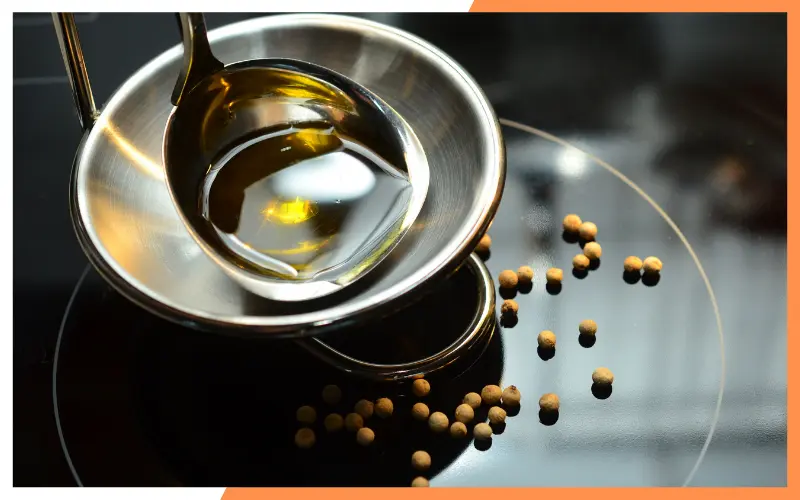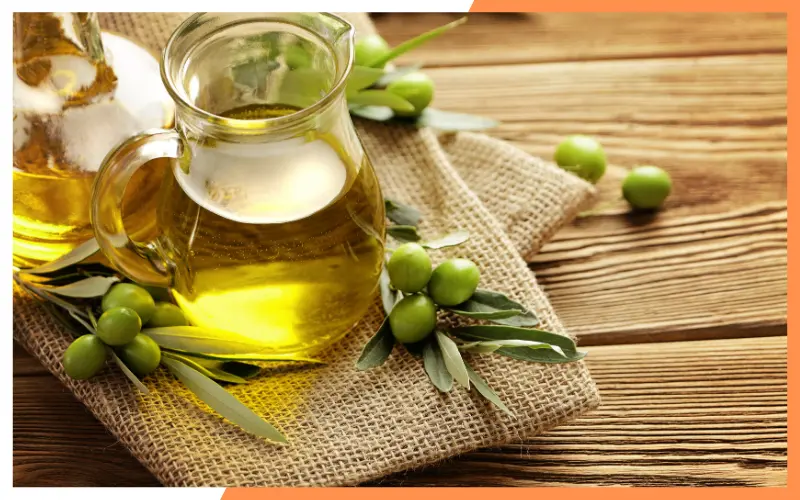Frying foods at home is a great way to save time and energy. The problem is that some oils don’t perform well during cooking. This means you might end up wasting oil or having greasy food.
Deep-frying is a great way to enjoy delicious food without spending much time cooking. The problem is that some oils don’t perform well during deep-frying. If you want to get the best out of your deep fryer, you must choose the right type of oil.


How to Choose the Best Oil for Deep Frying
Deep frying is one of those things that seems easy enough, but it turns out there are actually a lot of variables involved. You might think that choosing the best oil for deep frying is just a matter of picking the cheapest option, but that isn’t always the case. In fact, some oils are much better suited for certain types of food than others.
The key thing to remember about deep frying is that the temperature must remain constant throughout the process. If the oil gets too hot, the food inside could burn, while if the oil stays cool, the food won’t brown properly. This is why choosing the right oil for the job is important.
There are three main factors to consider when selecting the best oil for deep-frying:
1. Smoke Point
A smoke point refers to the lowest temperature at which a particular oil begins to produce harmful fumes. For example, olive oil has a high smoke point because it doesn’t start producing dangerous chemicals until temperatures reach around 350 degrees Fahrenheit.
On the other hand, peanut oil has a low smoke point because it starts producing toxic substances well before that temperature is reached.
2. Flavor
Olive oil is great for adding flavor to dishes, while vegetable oil is often used for sautéing vegetables. Some people even use coconut oil for baking because it adds a nice tropical taste.
However, most chefs prefer to stick with neutral oils such as corn, soybean, sunflower, or grapeseed oil when it comes to deep frying. These oils don’t add any extra flavors to the food, making them perfect for searing meats, poultry, seafood, and veggies.
3. Health Concerns
Some oils are more likely to cause health problems than others. For example, canola oil contains omega-6 fatty acids, which may increase your risk of cancer.
Safflower oil contains linoleic acid, which can raise LDL (bad) cholesterol levels. Olive oil is rich in antioxidants but contains polyphenols, which may interfere with blood.
Peanut Oil for Frying
Peanut oil is good for frying because it doesn’t burn easily, has a high smoke point, and is cheap. But cold pressed, expelled, and extrusions peanut oils are dangerous for people with severe food allergies. They contain trace amounts of peanuts, making them potentially deadly.
Vegetable Oil for Frying
The best way to fry food is with high heat and short exposure times. This method creates a lot of smoke, which makes the food taste bitter. To avoid this, use a low temperature and long exposure times. For example, deep-fry foods at 180 degrees Celsius for about 10 minutes.
Canola Oil for Frying
Fried foods are one of the easiest ways to add flavor to food. They are quick and convenient, and you don’t have to worry about overcooking the food because it doesn’t take long to cook.
If you want to make fried foods healthier, you might consider switching out some of the regular vegetable oil for canola oil. This type of oil is high in monounsaturated fats, which help lower cholesterol levels.
It is also low in saturated fat and trans fat. You can use canola oil for many different types of foods, including vegetables, meats, breads, and desserts.
Corn Oil for Frying
The most common cooking oils are vegetable oils like soybean oil, corn oil, safflower oil, sunflower oil, peanut oil, olive oil, sesame oil, grapeseed oil, cottonseed oil, etc. These oils are used for both baking and frying.
They are generally considered healthier than animal fats because they contain less saturated fat. However, some people avoid using vegetable oils due to concerns about trans fats.
Trans fats are found naturally in meat and dairy products but are produced during processing. Some studies suggest that consuming too much trans fat increases the risk of heart disease.

Which Oils Are Best For Deep Frying, And Why?
Olive oil is the best for deep frying since it contains antioxidants. Olive oil is rich in polyphenols, which help prevent oxidation. Oxidation occurs when oxygen reacts with certain compounds in food, causing them to change color or become rancid.
Polyphenols are powerful antioxidants that protect against free radicals, which cause cell damage. Free radicals are formed by toxins in our environment, such as cigarette smoke, pollution, radiation, and pesticides.
Conclusion
There are many different kinds of oils available on the market today. Each kind has its own benefits and drawbacks. The best choice depends on what you’re trying to accomplish. For example, if you want to make healthy snacks, choose an oil high in unsaturated fats. If you want to bake cookies, then go for a neutral oil.

Meet our air fryer recipe expert, Jenny J. Brown. Jenny is a culinary enthusiast with a passion for creating healthy, delicious meals using the latest kitchen appliances. As an experienced home cook and food blogger, Jenny has spent years experimenting with air fryer recipes and perfecting her techniques to create meals that are both nutritious and satisfying.
